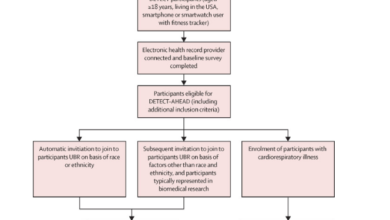Breakthrough Discovery: New Treatment Target Identified for Genetic Epilepsy, Offering Hope for CDKL5 Deficiency Disorder”

CDKL5 Scientists at the Francis Crick Institute have uncovered a novel target for treating CDKL5 deficiency disorder (CDD), a prevalent form of genetic epilepsy. CDD induces seizures and hampers children’s development, with existing medications primarily addressing symptoms rather than the disease’s root cause. The disorder results from the dysfunction of a gene producing the CDKL5 enzyme, responsible for phosphorylating proteins by adding an extra phosphate molecule to modify their function.
CDKL5
Building on recent findings from the same laboratory identifying a potential therapy target for CDD involving a calcium channel, the team has now pinpointed another approach to potentially address CDD. Their research, published in Molecular Psychiatry, focused on studying mice lacking the CDKL5 enzyme, exhibiting symptoms akin to individuals with CDD, such as impaired learning and social interaction.
The scientists observed that CDKL5 is active in nerve cells but not in astrocytes, another type of brain cell. In nerve cells, they assessed the phosphorylation level of EB2, a molecule targeted by CDKL5, to understand the repercussions of its absence. Surprisingly, even in mice lacking CDKL, there was residual EB2 phosphorylation, suggesting the involvement of another similar enzyme.
Through exploration of enzymes resembling CDKL, the researchers identified CDKL2, which also targets EB2 and is present in human neurons. In mice lacking both CDKL5 and CDKL2, nearly all remaining EB2 phosphorylation ceased. While CDKL accounts for most activity, approximately 15% arises from CDKL2, with the remaining <5% attributed to an unidentified enzyme.
The study proposes that elevating CDKL2 levels in individuals deficient in CDKL5 could potentially mitigate some early developmental brain effects. CDD profoundly affects young children from birth, and the underlying reasons for the catastrophic impact of losing this enzyme remain unclear. The researchers believe that boosting CDKL2 levels may offer a way to counteract or prevent symptoms from worsening.
Sila Ultanir, Group Leader of the Kinases and Brain Development Laboratory at The Francis Crick Institute, highlighted the potential breakthrough: “If we can increase levels of CDKL2, we might one day be able to stop symptoms from developing or getting worse.”
The researchers are now exploring whether mice lacking CDKL can be treated by stimulating their brain cells to produce more CDKL2. Additionally, collaboration with biotechnology companies aims to identify molecules that boost CDKL2 for potential new medicines addressing CDD. Former Crick PhD student Margaux Silvestre emphasized the significance of these discoveries in providing fresh insights and hope for improved treatments for children affected by this devastating condition.




